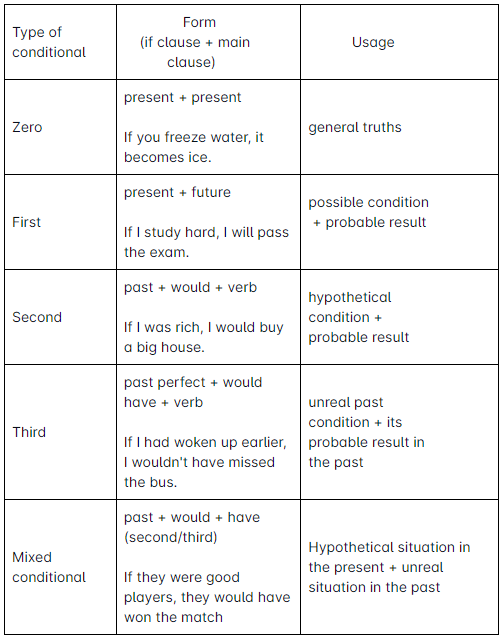Conditionals:
"If I heat ice, it will melt."
The outcome is certain.
This is an example of a zero conditional. The outcome is certain.
"If you ask Boris Johnson a straightforward question, you will not get a straightforward answer."
"If I hit a child at 160kph, they will die."
A zero conditional is where I refer to an outcome which is certain.
First conditional:
"If I am late for school, I will get detention." Here the outcome is probable, but not certain as there are limited circumstances in which you can be late and avoid detention.
"If you allow your wife to use your credit card, you will incur a huge debt!"
In a first conditional, the outcome is highly probable, but not certain.
Second conditional:
Here I speak of an outcome which is possible, but not likely.
"If an England game goes to penalties, we still have a very slim chance of winning."
"If I get a pay rise, I will buy a new car."
For a second conditional, the outcome is possible - but unlikely.
Third conditional: here the outcome is no longer possible.
"If England could take penalty shoot outs, we could have won the European championship last year."
"If my ex wife had behaved better, we would still be married."
To sumarise:
Zero conditional: outcome is certain.
First conditional: outcome is probable, but not certain.
Second conditional: Outcome is possible, but not likely.
Third conditional: Outcome was possible in the past, but not any longer possible in the present.
(When a sentence or statement begins in 'if' think about whether it is a conditional, and if so, which conditional it is).

